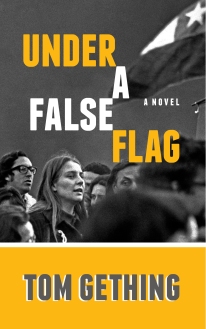“All happy families are alike,” wrote Tolstoy in Anna Karenina, “each unhappy family is unhappy in its own way.” Which, if you agree, goes a long way to explaining why novelists focus on the latter.
When Rohinton Mistry’s Family Matters was published in 2002, several reviewers compared the Indian-born writer to Tolstoy. Mistry, who now lives in Canada, is best known for his 1995 prize-winning novel, A Fine Balance, about the Indian Emergency of 1975.
 Family Matters, as the title suggests, is the story of an extended family living in Mumbai (Bombay)—India’s largest city and commercial center—during the 1990s. It’s a period of rapid growth and political turbulence. While the ethnic-based politics of the Shiv Sena and longstanding tensions between Hindus and Muslims swirl like a typhoon in the background, Mistry’s attention is on the disruptions to a Parsi family when Nariman Vakeel, the family’s 79-year-old, Parkinson’s-stricken patriarch, falls and breaks his leg.
Family Matters, as the title suggests, is the story of an extended family living in Mumbai (Bombay)—India’s largest city and commercial center—during the 1990s. It’s a period of rapid growth and political turbulence. While the ethnic-based politics of the Shiv Sena and longstanding tensions between Hindus and Muslims swirl like a typhoon in the background, Mistry’s attention is on the disruptions to a Parsi family when Nariman Vakeel, the family’s 79-year-old, Parkinson’s-stricken patriarch, falls and breaks his leg.
The Parsis are an ethnic and religious minority in India (originally from Persia, they practice a form of Zoroastrianism). They have enjoyed a disproportionate role in the commercial success of Mumbai since the days of the British East India Company. Over time, however, they have become a smaller and smaller minority, and one of the questions raised in this novel is the place they will have in India’s future.
Family Matters doesn’t strive for the epic proportions or moralistic tone of Tolstoy’s novels. But, like Tolstoy, Mistry uses third-person omniscience and a graceful, dispassionate style to describe Nariman’s physical decline. With the same objective scrutiny, he details the stresses and strains pulling apart the siblings who must care for him. In extremis, their dysfuntional relationships surface, and as the story unwinds we learn in flashbacks that the unhappiness stems from Nariman’s past.
In his youth, Nariman fell in love with a non-Parsi woman named Lucy. Lacking the courage to defy his parents, he broke off with her to marry Yasmin, a Parsi widow with two young children, Coomy and Jal. Despite the birth of another child, Roxana, Nariman and Yasmin’s marriage remained unhappy. Unable to stop loving Lucy, Nariman stirred resentment and anger in his wife and bitterness in his stepchildren, a bitterness that emerges as disgust when Nariman becomes an invalid under their care.
Having failed to launch and still living with their stepfather in his large flat, where they are haunted by the memory of their dead mother’s unhappiness, Coomy and Jal are quick to foist Nariman on Roxana even though she and her husband and two sons live in a much smaller two-room apartment. Soon financial pressures and the close quarters put stress on this once-happy family, too.
Mistry is best at describing the physical tribulations of old age—the embarrassment and helplessness as illness takes over. His clear-eyed writing of these difficult scenes bears all the hallmarks of Tolstoyan realism. His characters, however, lack the complexity and inconsistencies of the great Russian’s. With the possible exception of Roxana’s husband, Yezad, they remain constrained by what fate has delivered: Roxana worries about finances and the added strain on her family but remains cheery beyond belief while caring for her father. Coomy, in her unforgiving bitterness, seems one-sided, and Jal, too vague and passive.
This stunting of character may be intentional. No one in this family except Yezad and his young sons has any life outside the family. And even Yezad ends up cutting off most of that as he struggles with career ambitions and swerves toward religion. There is an incestuous feeding on unspoken emotions within this family, and the novel at times feels claustrophobic, as confined as Nariman in the late phases of his illness. And that may have been Mistry’s point.






An eloquent review (as usual). Am going to give this one a read.
Thanks, Letizia. I have only been to Mumbai once, on a brief business trip, and I have always wanted to go back. But this book does a pretty good job of taking you there virtually.
I enjoyed reading this review, Tom, from the comparison with the work of Tolstoy to the claustrophobic “feel” of Mistry. And I do like the novel’s title and its contrasting interpretations.
Thanks, Russell. India captivates me, so getting a peek into this fictional family was quite interesting.
It sounds brilliant, well if people suffering can ever be called brilliant but I need to give this a read, especially after watching a documentary on the Indian railways during monsoon season, just last night!
You might enjoy A Fine Balance then, which begins with a scene in a rail car 🙂 Thanks for stopping by, Ste J.
Outstanding review as always dear Tom… I thank you for bringing your readings to us… Oh and by the way that quote by Tolstoy is eloquent and I would also say it might fit well Italian Realism… 🙄 All the best to you! Aquileana ⭐
Thanks, Aquileana. Italian realism…that sounds like a whole new area for me to learn about. Thank you for the tip. Have a great week ahead. 🙂